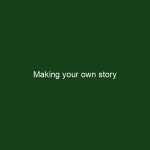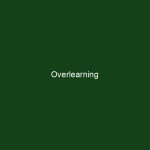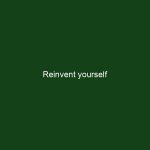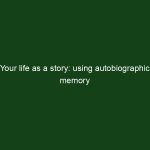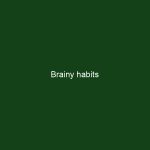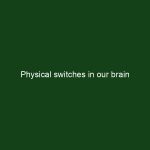A good way to generate long-term retention is building a great story. Our autobiographical memory is usually very good, and we remember the stories we own for a long time. This post has been inspired by this, this and this articles. Who should use it? Most of us can remember stories very well. Some of …
Overlearning
The theory of overlearning is complex, the implementation of overlearning is very simple. You learn something till you get nearly 100% score, take some rest and then you learn it some more to get nearly 100% score the next time you need to use your skill. In other words, if you simply learn something and …
Using flash cards
Using regular visualization methods, we can remember something for days, but we will forget the information eventually unless we review the information from variors perspectives or use additional methodology for long-term retention. When we need to remember something for years and years we have several choices. One of the more popular solutions are flash cards. …
Reinvent yourself
My personal biggest challenge is reinventing myself over and over again. In this article, I want to address the issues I often face and some things I have learned by facing these issues. The need to reinvent myself is a result of my lifestyle. I work with the newest most exciting technologies out there. The …
What makes you successful at learning
The longest night this year is December 21st. This is a good time to think about the way we passed and the way ahead of us. This year I have definitely made my share of mistakes, yet I learned a couple of valuable lessons. It is probably impossible to tell what makes people successful in life, …
Your life as a story: using autobiographic memory
Quite often we can view our life as a story. People often tell that before the clinical death they could see their whole life passing before their eyes. This is the autobiographic memory in action. Autobiographic memory is very important in our life. We can train it, we can use it to remember other things, …
Continue reading “Your life as a story: using autobiographic memory”
Brainy habits
There are many ways to study in life. Some ways are more conventional than others. There is an intricate connection between what we do and what we know. Some habits may have a surprising effect on our brain. This post was inspired by this, this, this and this articles. Conventional education It is pretty safe …
How to choose a book to read
Suppose we generated enough time each day to read something meaningful. This is in no way a small achievement, and if you can read every day you are probably one step ahead of 90% of your peers. Now, what do we read to make the most of this time? The answer is probably quite complex… …
Physical switches in our brain
Our brain is a physical object, and its reactions are physical. We may attribute our memories and experiences to some spiritual and intellectual domain, which is perfectly fine. Sometimes, however, it is best to attribute our experiences to misinterpreted physical experiences. For example, if you have a bad gut feeling, it is probably a heartburn …
Iterative reading of complex documents
Suppose we are doing a research project, and find a patent or a complex article. The document contains text, tables, graphs, names, numbers, formulas… Where do we even start reading? How do we know we understand what needs to be understood? Occasionally it makes sense to read a document more than once or twice, but …

